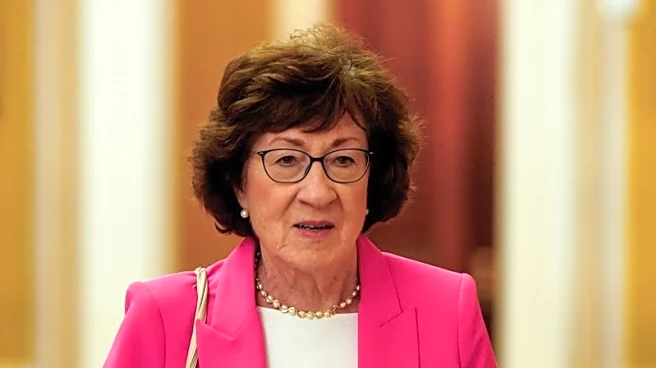What's Happening?
Stephen Miller, former deputy chief of staff to President Trump, has been criticized for his dating advice promoting 'alpha' male behavior. Miller's advice, given on Fox News, suggested young men should be proud Trump supporters to attract women. However, surveys indicate that many women are less likely to date Trump supporters. Relationship experts argue that Miller's advice oversimplifies complex relationship dynamics and promotes a rigid form of masculinity that can hinder emotional intelligence and authentic connections. Experts suggest that true attractiveness lies in emotional intelligence and self-assuredness, rather than adhering to 'alpha' stereotypes.
Why It's Important?
The advice given by Stephen Miller reflects broader cultural narratives within the 'manosphere' that emphasize dominance and emotional detachment as desirable traits. This perspective can negatively impact young men's understanding of healthy relationships, leading to emotional disconnection and unrealistic expectations. The criticism from relationship experts highlights the need for more nuanced and empathetic approaches to dating and relationships, which can foster healthier interactions and emotional well-being. The discourse around 'alpha' behavior also underscores societal shifts in gender roles and expectations, influencing how men and women engage in romantic relationships.
What's Next?
As the conversation around 'alpha' behavior continues, there may be increased scrutiny on influencers promoting such narratives. Relationship experts and therapists might focus on educating young men about emotional intelligence and authentic self-expression as keys to successful relationships. Additionally, dating platforms could see shifts in user preferences, with individuals seeking partners who prioritize emotional connection over traditional gender roles. This could lead to broader cultural changes in how masculinity is perceived and expressed in society.
Beyond the Headlines
The perpetuation of 'alpha' male stereotypes raises ethical concerns about the impact of such narratives on young men's mental health and societal expectations. It challenges traditional notions of masculinity and encourages a reevaluation of what constitutes a healthy and attractive partner. This discourse may contribute to long-term shifts in cultural attitudes towards gender roles, promoting more inclusive and diverse representations of masculinity.









